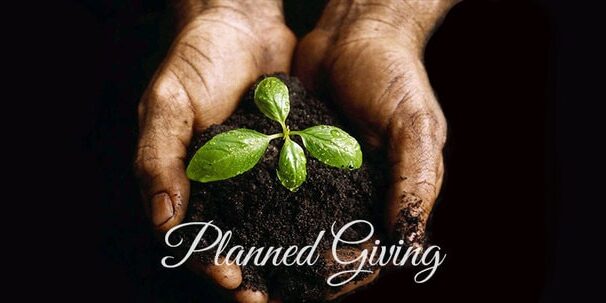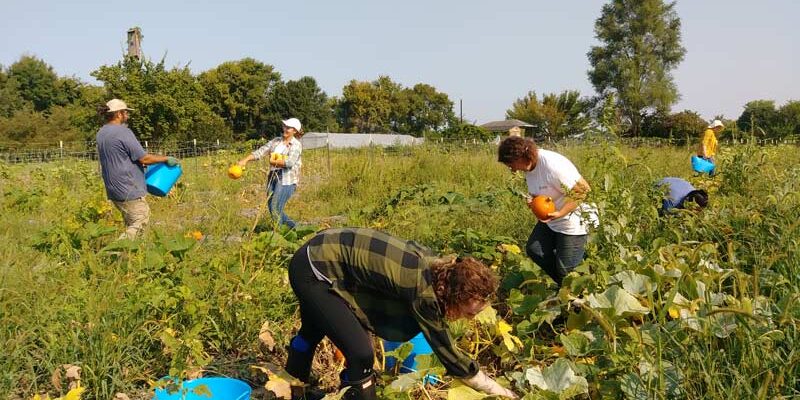Facing institutionalized racism within myself
[Editor’s note: Amanda is a regular teen volunteer with the Sisters of Providence]
At first, I wasn’t sure it was my place to write about institutionalized racism in America. After all, I’m not black. Do I really have a right to talk about something that doesn’t affect me? But I realize that institutionalized racism does affect me. It affects everyone that lives in America, whether we realize it or not.
The definition of “institutionalized racism” from Solid Ground is “the systematic distribution of resources, power and opportunity in our society to the benefit of people who are white and the exclusion of people of color.”
My own experience

Let me tell about my own personal experience of institutionalized racism. While it’s been a hard truth for me to accept, I realize that I don’t think of black people the same way I do white people.
I went on a mission trip a few summers ago to Memphis, Tennessee. I was assigned to help at the local Boys and Girls Club. As soon as I walked in, I felt uncomfortable. The group of other teenagers I was working with, our group leader and myself were all white, and we had just entered a building where everyone else was black. It was a startling experience for me. Raised in Terre Haute, Indiana, I had never been in a room or situation where there were more black people than white people. In that moment I first recognized the deeply rooted feelings and thoughts I had, and still have, about black people.
I’ve never considered myself racist, I always do my best to treat everyone fairly. But in that moment, I realized that skin color is something I notice and something that matters to me, not in conscious higher-level thought, but almost at an instinctual level. I was aware of that race barrier, and I felt a very distinct sense of “I am different from you.” This is where my own self-awareness began. When I am in a room with black people, I don’t think of them as lesser, simply as other. And that’s a problem.
When the current police brutality and violence began being publicized, it brought this realization again to the forefront of my mind. I’ve since been searching for reasons, both in my own life and in a broader societal and historical context, that I think the way I do.
History of race relations

Firstly, let’s take a quick look at the history behind the relation of black and white people in America. My reference for this is a video by Steve Heimler, who is an AP World History teacher. (His channel is called Heimler’s History, if you want to check it out). Going way back, the first meeting of black and white peoples in North America was through slavery. Slave traders brought over a boatload of Africans to work as slaves. As demand grew, they brought more and more Africans. Socially, this did something important. It established the relationship between black and white as that of slave and master. This level of slavery required dehumanization, or the viewing of another human being as less than human. White people had to tell themselves that the slaves they forced to tend their lands were less than human, less than them, less in general, to justify their own behavior. And the dehumanization went both ways. Black people also saw the people who cruelly bought and sold them like animals as being animals themselves. This began that thought process of “other” between these two races in our country.
Whitewashed and under represented
The vestiges of that system remain today. On paper, black people and white people are equal. It’s the mindset that persists in society that’s the problem. We see this played out often. In representation of race in media, in communication, and in history.
In movies and TV shows and even in books, people are predominantly white. This imbalance shows white as the default. This undermines and invalidates black people by bypassing their existence or portraying them as lesser. The news portrays black people more often as criminals than for doing good. In much communication, white is the default. When people talk about someone else or describe their appearance, usually skin color is only mentioned if they aren’t white.
In history, many people are “whitewashed”, or commonly portrayed in media and art as being white when they weren’t or aren’t. Just for reference, here are a few important historical characters that weren’t white: Jesus, Beethoven, Cleopatra, King Tut, Saint Nick, Saint Augustine, Alexander Hamilton, Tony Mendez, and so many more. This undermines people of color by leaving them out of history.
White being the default is harmful for many reasons. It displays white people as superior since we’re the only ones who are represented. Secondly, it sets unrealistic expectations.
Imbalanced representation
Though there are fewer people of color in the U.S. than there are white people, there are proportionally many more than what we see represented on TV. So, people like me who grew up in an area where they’re usually around more white people than people of color start to believe that’s how it is everywhere is. And it’s not. It can also instill a sense of being different as being a bad thing. After all, if we say black people and white people are equal, why aren’t they represented that way? The answer lies in the systematic racism in our country. We still haven’t changed our ways as much as we should have, and this is the result.
I, as a white person, and every other white person out there needs to not only be “not racist” but actively anti-racist. We need to challenge that gut reaction that different is dangerous. And we need to consciously change our thought processes concerning people of color. That’s not easy. And it’s not going to be easy. But that’s all the more reason it needs to be done.



Thank you, Amanda, for your very thoughtful and well-written essay! You have a lot of insight into yourself (and human nature in general) and you challenge us to examine our own thoughts and reactions to the “other,” someone who appears different. You bring to light some subtle feelings and presumptions that can lurk in an unexamined heart. It can be very uncomfortable to recognize these “unchristian” feelings and thoughts in ourselves, but when we do admit them and resolve to correct them, we will be free of them. “The truth will set you free,” John 8:32. Alleluia!!
Nice job, Amanda!
Thank you, Amanda, for your comprehensive, thoughtful and challenging reflections. You have wisdom beyond your years! I am grateful that so many young people are speaking out against racism and taking a lead toward its eradication.
Thought-provoking for all of us. Thanks!
Thank you Amanda! Your awakening awareness and your ability to articulate it gives me great hope that your generation is going to important strides in the long struggle toward equality and justice.
So grateful for your willingness to share this powerful reflection with us. May we all keep growing in our awareness that can lead us to meaningful action to respect the dignity of all persons.
Yes! As you say, it’s not going to be easy. We white people have much work to do. Thank you Amanda for your transparency. Your willingness to share your experience helps us all enter into this work with humility and determination.
Thanks, Amanda. I can’t be challenged, reminded often enough to not look at what’s around me (or who is not around me) but to see with the eyes of my mind and heart. Wonderful challenge.
I was so touched by your honest wording….this article was very touching, and I compliment you for your honesty. Good work, Amanda!
With your permission, may I use your words to express my exact feelings? Very well stated.
If you’re asking for my permission, consider it given! I’m glad people could identify with my writing!
Amanda, you have amazing insight and ability to express yourself. I hope that as you enter your junior year at South Vigo H.S., you will find ways to share your understanding of white privilege and racism with your classmates and faculty.
So very proud of our Teens and their convictions to speaking truth to power.
Amanda, your courage, wisdom and commitment to justice is inspiring.
You are a Prophetess of our time.
Thank you!
That was an amazing well written article! Great job!
Well said, Amanda! Thank you for sharing your personal experience and how we are where we are today. I have hope because of people like you.
Amanda, I am so happy to hear issues being dealt with honestly and with an open spirit. You shared different experiences you had and how you FELT and the wisely recognized you had to think about changing something within you. You are learning! We all hopefully continue to learn and change . We have to ask ourselves how we can grow and change together.
Great blog, Amanda! It is very challenging and extremely necessary! The fact that you are grappling with your own biases and backing it up evidence (personally and historically), I feel, gives credence of the insidious nature of racism, and the call for all us to look at ourselves–white, yellow, brown, black alike–and how we unconsciously perpetuate the violence of superiority and disdain. You bring up many famous figures that, at first recollection, are “understood” as being white, but those static presumptions, and underlying biases, need to be debated not matter how seemingly “insignificant” they are.. Who are the change-makers/gifted ones in our society? They do not comprise of just one particular color/culture. I think your article is a great beginning to a much needed and difficult conversation, both internal and external!
Amanda, thank you for your brave heart to put your genuine thoughts and feelings in writing. Your personal experience and your compassion on anti-racism certainly fosters hope and courage in actions in one’s respect toward others. Powerful work!